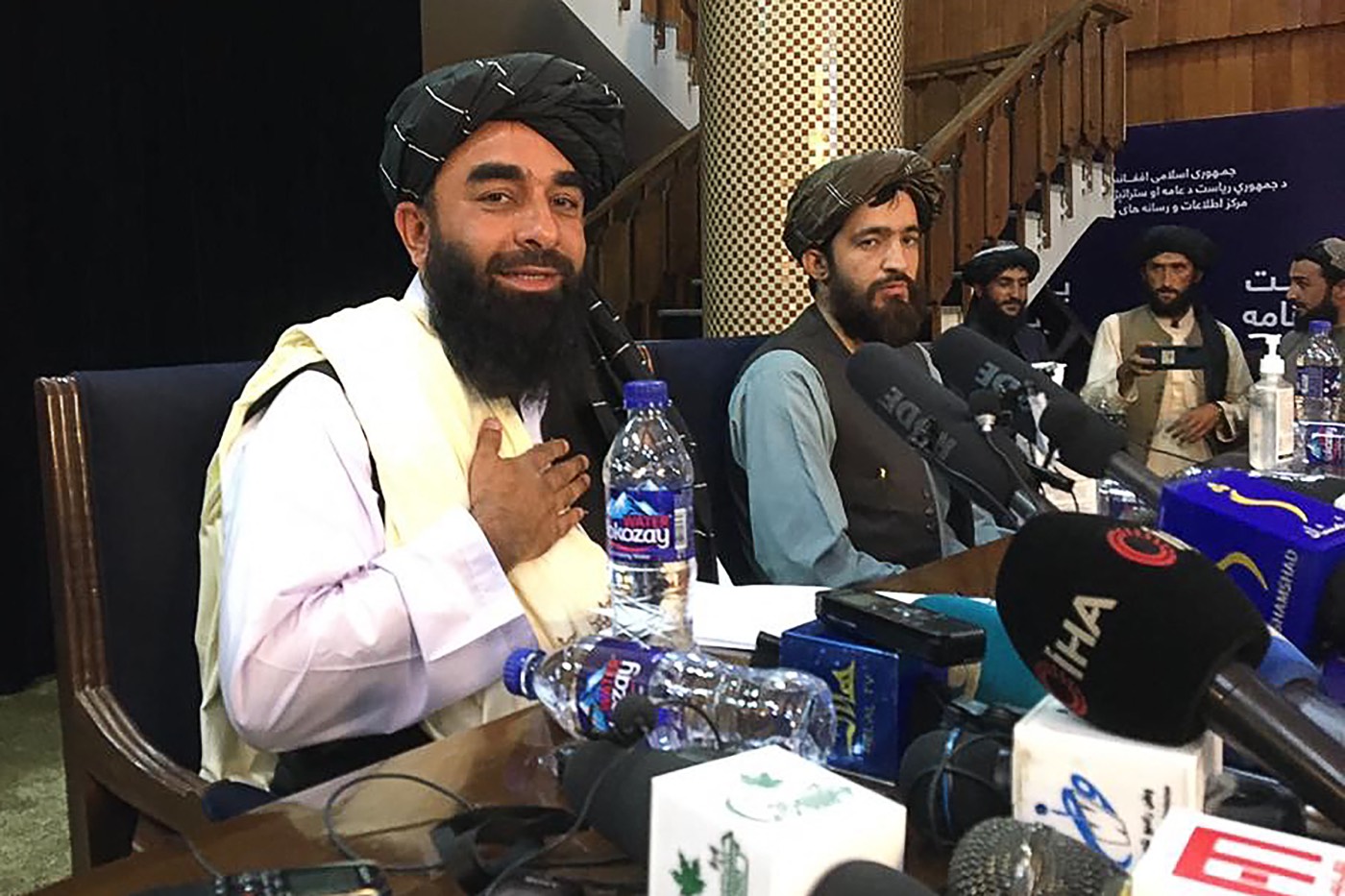What are China and Russia planning for Afghanistan?
Beijing and Moscow reach out to the Taliban as Iain Duncan Smith fears West is losing the new Cold War

A free daily email with the biggest news stories of the day – and the best features from TheWeek.com
You are now subscribed
Your newsletter sign-up was successful
While much of the international community recoils in horror at the Taliban’s takeover of Afghanistan, leaders in China and Russia have been reaching out to the militant group.
Antony Blinken, the US secretary of state, has held urgent phone calls with his Russian and Chinese counterparts to urge them to work with Washington in response to events in Afghanistan but his plea may have come too late.
Embracing Islamists
The Week
Escape your echo chamber. Get the facts behind the news, plus analysis from multiple perspectives.

Sign up for The Week's Free Newsletters
From our morning news briefing to a weekly Good News Newsletter, get the best of The Week delivered directly to your inbox.
From our morning news briefing to a weekly Good News Newsletter, get the best of The Week delivered directly to your inbox.
Al Jazeera points out that Beijing was “among the first to embrace the Islamist militants” as they began their return to power. Last month, Foreign Minister Wang Yi welcomed a Taliban delegation, a meeting that provided a “crucial boost of legitimacy” for the militants.
Amid an increasingly intense rivalry with the US, China’s state media has actively celebrated Washington’s withdrawal, with a commentary in the official Xinhua News Agency declaring it the “death knell for declining US hegemony”. Hu Xijin, an editor of the state-produced Global Times, tweeted that Chinese internet users had “joked that the power transition in Afghanistan is even more smooth than presidential transition in the US”.
Afghanistan’s stability is also “key” to protecting China’s Belt-and-Road projects in neighbouring Pakistan, which provide an overland route to the Indian Ocean and are worth more than $50bn, says Al Jazeera. Indeed, Kabul could become the “biggest test yet” of a Chinese diplomatic model that’s “driven by loans, commodities and infrastructure deals rather than demands for liberal policies”, adds the site.
But “perhaps no issue is as pressing for Beijing as ensuring that Afghanistan doesn’t become a source of extremism that bleeds over the border”, says Al Jazeera.
A free daily email with the biggest news stories of the day – and the best features from TheWeek.com
Last month’s meeting between the Taliban and Beijing “struck even some within China as odd, given the country is engaged in an oppressive campaign against Uighur Muslims in Xinjiang”, says Quartz. But it notes that the gathering “was preceded by a Taliban assurance that it would not allow the country to be used as a base for attacks on China”.
Senior unnamed Asian diplomats told the Financial Times that China was “willing to stump up hundreds of millions of dollars to finance the reconstruction of critical infrastructure in Afghanistan” if the Taliban adheres to Beijing’s objectives.
Propaganda blow
Meanwhile, Moscow has been pursuing a “campaign of quiet outreach to the Taliban”, says CNN. Although the Taliban is technically proscribed by Moscow, Russia’s foreign ministry announced it had established working contacts with the Taliban, which it said had “started to restore public order” in Afghanistan.
For Moscow, recent events in Afghanistan are a useful propaganda blow against the US. “With horror, the world is watching the result of another historic Washington experiment,” said Russian Foreign Ministry spokeswoman Maria Zakharova as the Taliban marched on the Afghan capital.
Russia will hope that its ties with the Taliban will strengthen its influence across the Middle East. There have even been claims that the Taliban received weaponry supplied by the Russian government, although Moscow has vehemently denied providing arms to the Taliban.
New Cold War
The Taliban’s takeover “redraws Asia’s geopolitical map and hands China and Russia – two of America’s staunchest strategic rivals – an opportunity to project their power”, says the Financial Times.
Aeound the globe, the West is being “consistently outfoxed by authoritarian states”, argues former Conservative party leader Iain Duncan Smith.
“As we tumble out of Afghanistan, China and Russia are rubbing their hands,” he writes in the Daily Mail. From Syria and Crimea to the Uighur genocide and the illegal occupation of the South China Sea, Moscow and Beijing watch as “the West bleats but does little”.
He warns that China’s President Xi “looks across to Taiwan and smiles, for he sees that President Biden’s resolve to protect the island is surely not that strong after all”.
“Whether we like it or not, we are engaged in an ideological conflict akin to the 1930s and the Cold War,” writes Duncan Smith. “I fear now it is a war we may be losing.”
Ultimately, argues Catherine Philp for The Times, the threats from the US and its allies to turn Afghanistan into a pariah state if the Taliban return to their brutal ways will “ring hollow” if China and Russia decide to go another way.
Chas Newkey-Burden has been part of The Week Digital team for more than a decade and a journalist for 25 years, starting out on the irreverent football weekly 90 Minutes, before moving to lifestyle magazines Loaded and Attitude. He was a columnist for The Big Issue and landed a world exclusive with David Beckham that became the weekly magazine’s bestselling issue. He now writes regularly for The Guardian, The Telegraph, The Independent, Metro, FourFourTwo and the i new site. He is also the author of a number of non-fiction books.